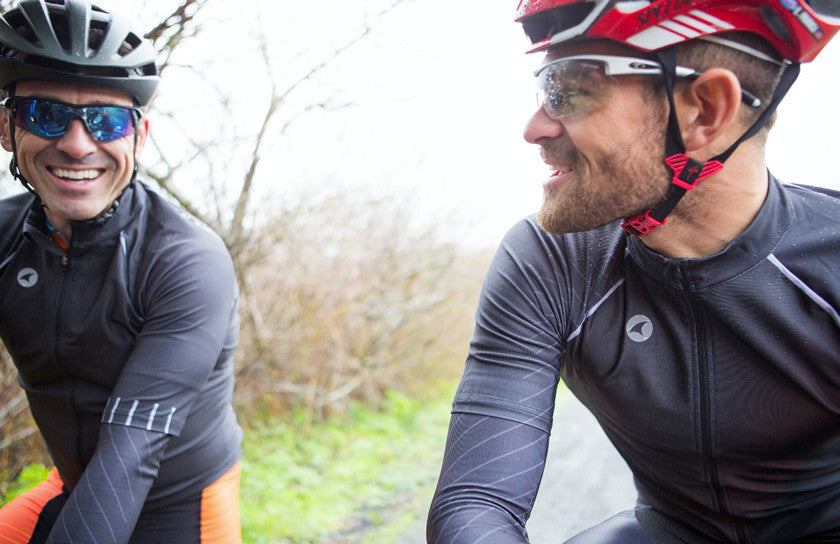by Stephen Gallagher, DigDeep Coaching Head Coach
We are entering part of the year when all of our focus is on the first races and how we are going to fare against our peers after a hard winter’s training. The excitement is part of the anticipation, as the sign on sheet awaits to kick off the 2013 season.
What you maybe haven’t thought about is how you will fit in your training and progression through the racing months, enabling you to get the most out of your racing and still develop specific areas and build towards your ‘A’ event.
This is a real Juggling Act. So, what are the factors you need to take into account?
- Current levels of fitness
- Ability to recover and how you have trained to improve this over winter
- What your ‘A’ event and ultimate goals are for the coming season
- How much you have improved your weaknesses prior to the racing season
- Illness/injury that might inhibit your racing when started
- Race program leading up to ‘A’ event
So often we see riders head into the season with good legs and improved fitness from the previous year, only to see that form disappear by April. The normal quotes we hear in the cycling community are that the rider is ‘burnt out’ or has ‘over trained’ during the winter period and simply could not sustain the form. More than often this is not the case and the loss of form is down to less obvious factors. More than often it is actually from a cycle of de-training come the race season. Strange? I hear you say. Well, not really.
When we hit the race season, we often place all of our physical and mental energy into the weekend and our focus is on results. Of course, this is not a bad thing, but we have to keep our focus on mid week training and continuing to work on areas we need to develop and specifics necessary for peak events. The de-training often comes from too much rest pre and post race, which is a far reduced physical training stimulus than may have taken place over the winter months. An example of this is a typical Sunday race, the lead up and subsequent recovery from this. Traditionally, Friday is an easy or rest day, Saturday is an easy pre race spin of a couple of hours, Sunday is a race (2-3hrs) and Monday is another rest day. So, you can see from the example that only 1 day involves proper physical training stress (the race on Sunday); out of 4 days this is not a lot. Take into account a puncture/crash or abandoning a race, this again constitutes a lowering of any physical training stimulus or progression that is needed to maintain or grow your form. Of course, there are many individual factors to take into account, but something we should all take on board.
The flip side of this ‘Juggling Act’ are riders on the other side of the fitness spectrum, those who are under trained or lacking ‘race form’. We often hear these riders want to race themselves fit and into form, but I would like them to consider the following variables to progress and make marked improvements.
Your ability to recover from the weekend’s racing is a big factor in how you train mid week and achieve consistent, structured training. We often feel an onset of muscle fatigue 24-48hrs after a race and this muscle fatigue is what leads us to take that extra rest day or sub standard training. So, what is the reason for this? Your body needs to repair damaged muscles from the previous strenuous effort (the race), the nervous system is working to repair muscles and your cells are working overtime to rebuild damaged tissue. The good news is that this leads to increased muscle strength and fitness. However, with lowered fitness, your body’s ability to recover from effort takes longer, which in turn leaves you unable to perform constructive training as your muscles ‘heal’ from the race. Along with the cellular and nervous system’s process, this strenuous weekend effort can also lead to a lowering of the immune system, which can in turn result in illness/injury that will inhibit your training. This is not just the result of an intensity your body is not used to, but also poor post event care and nutrition.
So, be aware of the dangers that lie come the race season. Make your goals clear and continue to look at your physical progress and how best you can achieve this through training and regime, rather than overwhelming emphasis on race day.
. . . . . . . . . . . . . . . . . . . . . . . . .
Stephen Gallagher, the Dig Deep Coaching Head Coach, is an Irish professional cyclist, who last rode for the British continental cycling team Sigma Sport-Specialized. He previously rode for the An Post-M.Donnelly-Grant Thornton-Sean Kelly Team team. His most notable wins include the FBD Rás Tour of Ireland in 2008, Tour of Taiwan and he has represented his country at the Commonwealth Games as part of the Road World Championship winning team.
Dig Deep Coaching (formerly Forme Coaching) provides unrivalled complete coaching solutions from specific coaching packages to an array of sports professional services. includes sports massage, sports nutrition, performance testing, powermeter rental, professional RETUL bike fit and more!
Visit digdeepcoaching.com for more information.
Pactimo is proud to partner with Dig Deep Coaching in Belfast to bring premium cycling apparel to the UK and Ireland.












